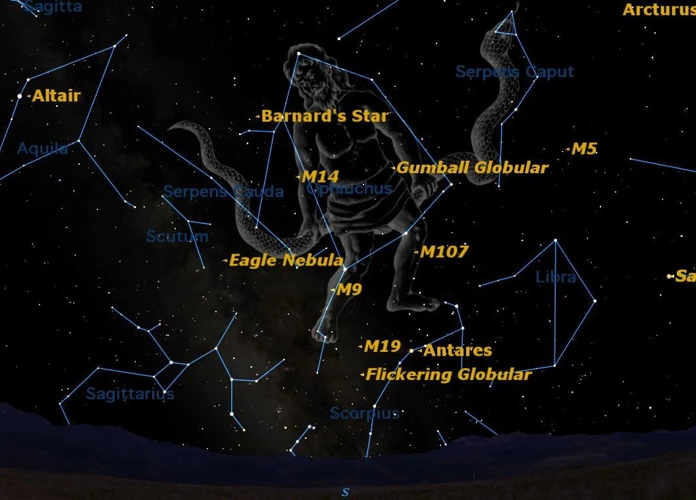The Ophiuchus constellation has captivated cultures around the world, each weaving their own unique stories and interpretations around this celestial figure. From ancient Greek mythology to indigenous Native American legends, and from Hindu astrology to Japanese constellation systems, the diverse origins of Ophiuchus reveal a rich tapestry of beliefs and traditions. This article will delve into the multifaceted history of Ophiuchus, exploring its significance in different cultures and shedding light on its role in Western astrology and beyond. Join us on a journey through time and space as we unravel the mysteries of Ophiuchus in different cultures.
Contents
- Origins of Ophiuchus Constellation
- Ophiuchus in Western Astrology
- Ophiuchus in Native American Cultures
- Ophiuchus in Eastern Cultures
- Conclusion
-
Frequently Asked Questions
- 1. What is the significance of Ophiuchus in ancient Greek mythology?
- 2. How does Ophiuchus influence Western astrology?
- 3. What role does Ophiuchus play in Babylonian astrology?
- 4. How is Ophiuchus interpreted in Chinese astronomy?
- 5. What are the indigenous interpretations of Ophiuchus in Native American cultures?
- 6. How is Ophiuchus represented in Hindu astrology?
- 7. What is the significance of Ophiuchus in Japanese constellation systems?
- 8. How does Ophiuchus feature in Korean mythology?
- 9. Are there any famous individuals born under the sign of Ophiuchus?
- 10. What are some common myths and misconceptions about Ophiuchus?
- References
-
Frequently Asked Questions
- 1. How old is the constellation of Ophiuchus?
- 2. Is Ophiuchus recognized as an official constellation?
- 3. What is the significance of the snake symbol in Ophiuchus?
- 4. How does Ophiuchus differ from the other constellations?
- 5. Does Ophiuchus have its own zodiac sign?
- 6. How did Ophiuchus become a part of Western astrology?
- 7. What are some indigenous interpretations of Ophiuchus?
- 8. How is Ophiuchus represented in Hindu astrology?
- 9. Are there any specific stories or myths about Ophiuchus in Japanese constellation systems?
- 10. Is Ophiuchus mentioned in Korean mythology?
- References
- Read More
Origins of Ophiuchus Constellation
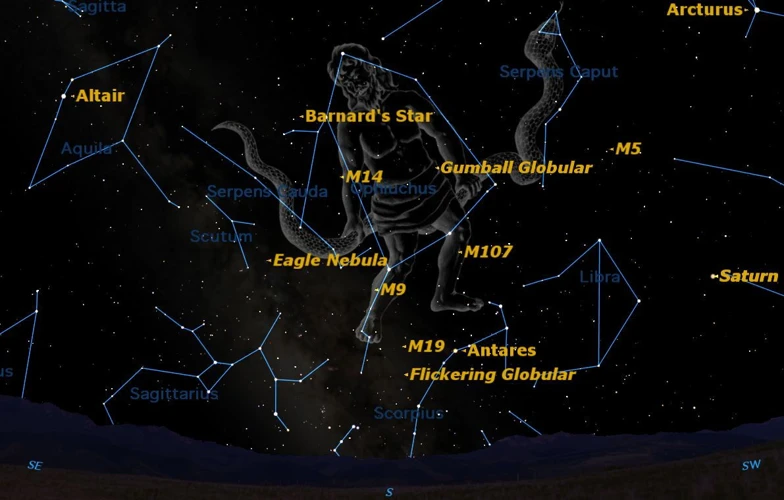
The origins of the Ophiuchus constellation are rooted in ancient mythology and astrology, with various cultures attributing different meanings to this celestial figure. In ancient Greek mythology, Ophiuchus is associated with the legendary healer Asclepius, who possessed the ability to resurrect the dead. This connection between Ophiuchus and healing is also seen in Babylonian astrology, where the constellation is linked to the god Imhotep, the patron of medicine and healing. In Chinese astronomy, Ophiuchus is believed to represent the god Zhongli Quan, one of the Eight Immortals known for their immortality and supernatural powers. These diverse origin stories highlight the significance of Ophiuchus across different cultures and their beliefs.
1. Ancient Greek Mythology
In Ancient Greek mythology, Ophiuchus is closely associated with the legendary figure of Asclepius, the god of healing and medicine. According to the myth, Asclepius was the son of Apollo, the god of music, poetry, and medicine. Asclepius possessed exceptional healing abilities and was revered for his ability to revive the dead. One of the most famous tales involving Asclepius is the story of his encounters with the snake. It is believed that Asclepius learned the art of healing from a serpent, which he observed while it was collecting herbs with its mouth. In gratitude for the serpent’s teachings, Asclepius would later adopt the symbol of a snake wrapped around a staff, known as the Rod of Asclepius, which is still recognized as a symbol of medicine today. The association between Asclepius and Ophiuchus is significant because it represents the enduring connection between healing and the constellation. These ancient Greek myths provide the foundation for understanding the profound role of Ophiuchus in the context of Ancient Greek culture.
2. Babylonian Astrology
In Babylonian astrology, the Ophiuchus constellation is associated with the god Imhotep, who held great significance in their belief system. Imhotep was regarded as a divine healer and patron of medicine and was often depicted holding a staff with a serpent wrapped around it, symbolizing his healing abilities. This representation is reminiscent of the modern symbol used in the medical field, the caduceus. The Babylonians believed that the presence of Ophiuchus in the night sky would bring about prosperity, good health, and protection against illness and disease. Imhotep was held in high regard not only for his healing powers but also for his knowledge and wisdom, making Ophiuchus an important and revered constellation in Babylonian astrology. The influence of Babylonian astrology has extended through the ages, shaping the way we perceive Ophiuchus and its ties to healing and medicine.
3. Chinese Astronomy
In Chinese astronomy, Ophiuchus holds a significant place in the constellations. Known as “She,” the Snake Charmer, it is associated with the god Zhongli Quan. The constellation is represented by a man holding a snake, symbolizing the power to control and tame the serpent. Zhongli Quan is regarded as one of the Eight Immortals in Chinese mythology. These revered beings are believed to possess immortality and supernatural abilities. In Chinese culture, the Snake Charmer represents wisdom, healing, and immortality. The depiction of Ophiuchus in Chinese astronomy reflects the importance of balance and harmony between humans and nature. The constellation serves as a reminder of the power of cosmic forces and our connection to the universe.
Ophiuchus in Western Astrology
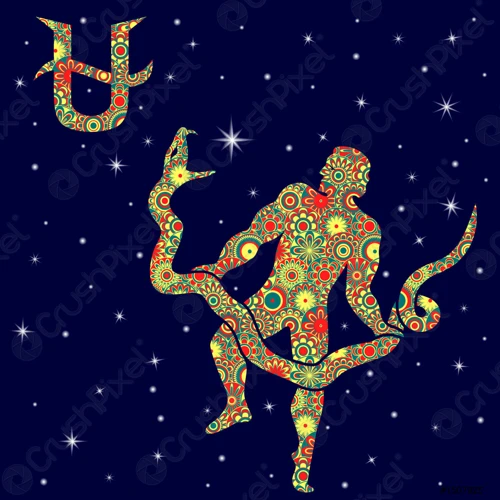
Ophiuchus in Western astrology has emerged as an intriguing addition to the traditional zodiac system. While not widely recognized as an official zodiac sign, Ophiuchus has gained attention for its influence on zodiac sign dates. In modern astrology, Ophiuchus is often associated with qualities such as wisdom, healing, and intuition. Some astrologers believe that individuals born under the Ophiuchus sign possess unique traits and characteristics that set them apart from others. However, it is important to note that the inclusion of Ophiuchus has sparked debates and controversies within the astrological community. Critics argue that Ophiuchus disrupts the established zodiac system and creates confusion among horoscope enthusiasts. Whether seen as a fascinating addition or a source of myth and misconception, Ophiuchus continues to intrigue and captivate those curious about the intricacies of Western astrology.
1. Emergence in Modern Astrology
In modern astrology, the emergence of Ophiuchus as a recognized constellation has intrigued many astrologers and enthusiasts. While Ophiuchus is not traditionally included as one of the twelve zodiac signs, some astrologers have incorporated it into their practice, considering it as a thirteenth sign. This viewpoint gained attention when astronomer Parke Kunkle mentioned the existence of Ophiuchus and the potential shift in zodiac sign dates in a 2011 interview. The concept of Ophiuchus as a distinct astrological sign has sparked debates and discussions within the astrological community, with some embracing its inclusion and others dismissing it as irrelevant. It is important to note that not all astrologers recognize Ophiuchus as a zodiac sign, and the interpretation of its influence may vary among those who do. Whether seen as a significant addition or a controversial deviation, the emergence of Ophiuchus in modern astrology has sparked curiosity and challenged traditional understandings of the zodiac.
2. Influence on Zodiac Sign Dates
The influence of Ophiuchus on zodiac sign dates has sparked discussions and debates among astrology enthusiasts. Ophiuchus falls between Scorpio and Sagittarius in the sky, which raises the question of whether there should be a thirteenth zodiac sign. This has created a shift in the traditional dates and duration of the zodiac signs. Those born between November 30th and December 17th may find themselves questioning their zodiac sign due to the inclusion of Ophiuchus. However, it is important to note that this shift in zodiac sign dates is not universally accepted or recognized, and many astrologers continue to follow the traditional twelve zodiac signs. It is essential for individuals to explore their birth charts and consult with professional astrologers for a deeper understanding of their unique astrological makeup.
Ophiuchus in Native American Cultures
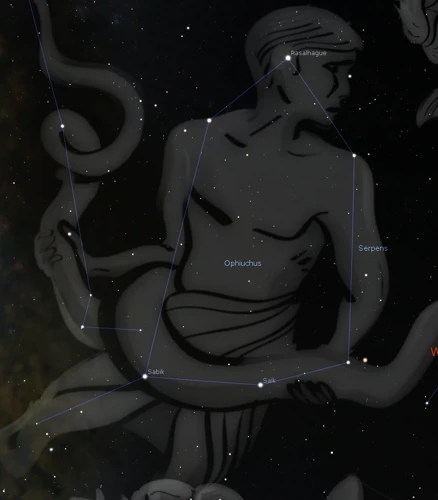
Native American cultures also have their own interpretations and beliefs surrounding Ophiuchus. Indigenous communities across North America have diverse interpretations of the constellation, often associating it with healing and spiritual wisdom. Some Native American tribes view Ophiuchus as a medicine man or shaman figure, representing the connection between the physical and spiritual realms. The constellation is sometimes linked to stories of powerful healers who possess knowledge of herbal medicine and can communicate with spirits. These interpretations showcase the reverence and importance placed on healing and spirituality within Native American cultures.
1. Indigenous Interpretations
In indigenous cultures, the interpretations of Ophiuchus vary greatly. Native American tribes, for example, have their own unique perspectives on this celestial figure. Some tribes view Ophiuchus as a powerful healer and spiritual leader, embodying the qualities of wisdom and guidance. They believe that those born under the influence of Ophiuchus possess natural healing abilities and are destined to lead their communities in times of illness and hardship. Other indigenous interpretations see Ophiuchus as a guardian of sacred knowledge and ancient wisdom, a cosmic teacher who imparts spiritual teachings and connects individuals with the divine. The constellation is often associated with ceremonies and rituals that promote healing and spiritual growth. These indigenous interpretations of Ophiuchus highlight the deep reverence and respect for nature, spirituality, and the interconnectedness of all living beings in native cultures.
2. Representation in Tribal Stories
In tribal stories from various Native American cultures, the constellation Ophiuchus holds unique symbolism and significance. While the specific interpretations may vary among tribes, Ophiuchus is often associated with themes of healing, wisdom, and spiritual transformation. For example, in some tribes, Ophiuchus is seen as a powerful shaman or medicine person who possesses the ability to communicate with spirits and facilitate healing rituals. The constellation’s position in the sky is believed to represent the connection between the earthly and spiritual realms. Additionally, the serpent symbolism commonly associated with Ophiuchus in Western astrology aligns with the Native American belief in the transformative power of snake medicine, representing rebirth and spiritual growth. In tribal stories, Ophiuchus serves as a reminder of the importance of embracing healing and spiritual journeys, and its presence is woven into the traditional narratives and teachings passed down through generations.
Ophiuchus in Eastern Cultures
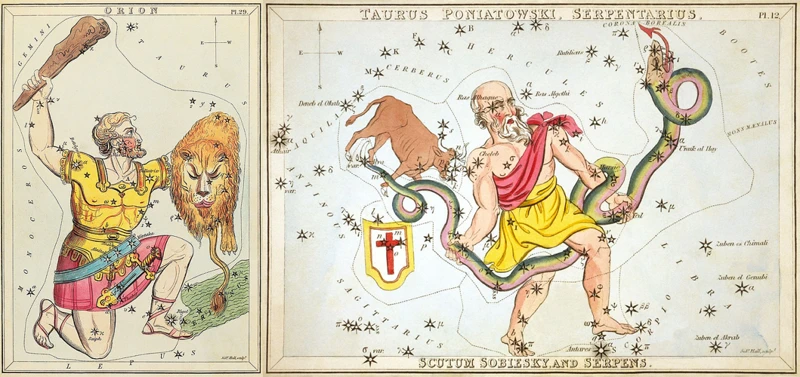
Ophiuchus holds a significant place in the cultures of Eastern civilizations, where its presence is marked in various astrological and mythological systems. In Hindu astrology, Ophiuchus is associated with the serpent-bearer known as Ashwini Kumar, who is considered the physician of the gods. Ashwini Kumar’s connection to healing aligns with Ophiuchus’ reputation as a healer in other cultures as well. In Japanese constellation systems, Ophiuchus is known as “Hebitsukai-Za,” which translates to “the snake farmer.” This ties in with Ophiuchus’ association with serpents and the serpent-bearer archetype. Additionally, in Korean mythology, Ophiuchus is linked to the story of Jujak, a mythical bird representing the southern direction in the zodiac. These various interpretations highlight the diverse and intriguing role of Ophiuchus in Eastern cultures.
1. Hindu Astrology
In Hindu astrology, Ophiuchus holds a unique position and is often referred to as the “Serpent Bearer” or “Naga Sages.” In Hindu mythology, it is believed that the constellation represents the celestial form of the prominent deity Lord Vishnu in his Kurma (Turtle) avatar. The Kurma avatar is depicted as a giant cosmic turtle that supports the weight of the universe on its back, symbolizing stability and balance. Ophiuchus is associated with wisdom, healing, and knowledge in Hindu astrology. Its placement in a birth chart is considered significant, as it can indicate an individual’s spiritual journey and their ability to harness and share wisdom and healing energies. The influence of Ophiuchus in Hindu astrology is reflected in the belief that those born under this sign possess exceptional healing abilities and a deep spiritual connection. The placement of Ophiuchus in a person’s birth chart may also provide insights into their career path and success. To learn more about the career paths of famous Ophiuchus individuals and their success stories, click here. As with any zodiac sign, it’s important to remember that individual interpretations may vary, and astrology should be approached with an open mind and an understanding of its cultural and historical contexts.
2. Japanese Constellation Systems
Japanese constellation systems have their own unique interpretations and representations of the Ophiuchus constellation. In Japan, Ophiuchus is known as Hebitsukai-Za, which translates to “Snake Charmer.” This constellation is associated with the mythical figure of Susanoo-no-Mikoto, who is believed to have slayed the eight-headed serpent, Yamata no Orochi. The story of Susanoo-no-Mikoto and the serpent is an integral part of Japanese folklore and has been passed down through generations. The Ophiuchus constellation is often depicted as a snake charmer or a figure holding a serpent in Japanese artwork and mythology. It is believed that those born under the influence of Hebitsukai-Za possess the qualities of wisdom, healing, and protection. This unique interpretation adds to the rich tapestry of Ophiuchus in different cultures, offering a glimpse into the diverse beliefs and celestial understandings of the constellation in Japan.
3. Korean Mythology
In Korean mythology, Ophiuchus holds a special place, known as the Serpent Bearer. In Korean folklore, the constellation is associated with the legend of the “Great Doctor” or “Dangun,” who is believed to have founded the first Korean kingdom, Gojoseon. According to the myth, the Great Doctor transformed into Ophiuchus after saving a village from a plague caused by a venomous serpent. The Serpent Bearer constellation is revered for its healing powers and is seen as a symbol of protection against disease and misfortune. In Korean astrology, individuals born under the sign of Ophiuchus are thought to possess strong intuition, healing abilities, and a sense of duty towards others. The influence of Ophiuchus in Korean mythology showcases the cultural significance and rich folklore associated with this constellation in Korea.
Conclusion
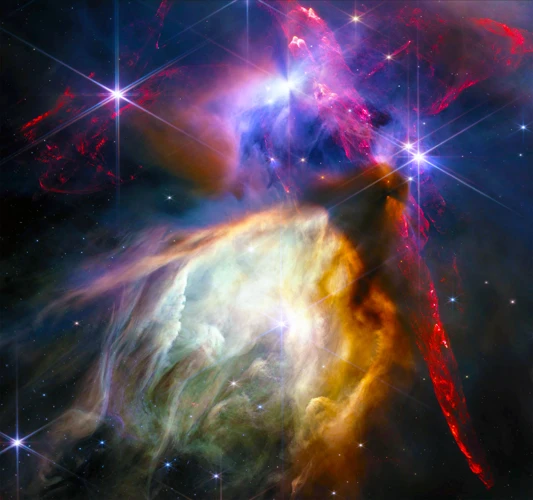
In conclusion, exploring the diverse origins of the Ophiuchus constellation unveils a fascinating tapestry of cultural beliefs and interpretations. From ancient Greek mythology to Babylonian astrology, Chinese astronomy to Native American legends, and Hindu astrology to Japanese constellation systems, Ophiuchus has served as a significant symbol in various traditions worldwide. While Western astrology has only recently acknowledged Ophiuchus as the 13th zodiac sign, its presence and significance in other cultures have long been recognized. The stories and symbolism associated with Ophiuchus highlight the deep connections between humans and the stars, as well as the profound influence celestial bodies have had on our understanding of the world. Despite misconceptions and differing interpretations, the allure of Ophiuchus continues to captivate individuals from all walks of life, inspiring spiritual journeys and capturing the imaginations of many. To learn more about the spiritual significance of Ophiuchus in the lives of celebrities, or to dispel common myths surrounding this constellation, feel free to explore our articles on celebrities influenced by Ophiuchus or myths and misconceptions surrounding Ophiuchus. Discover the rich history and cultural significance of Ophiuchus to deepen your understanding of this intriguing celestial figure.
Frequently Asked Questions
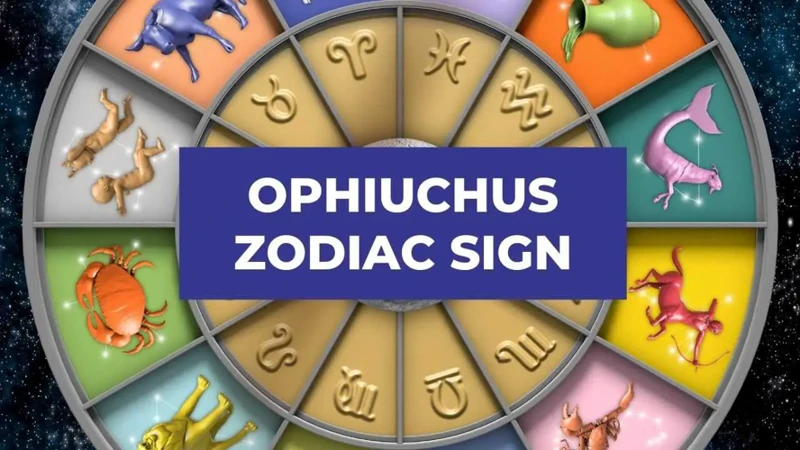
1. What is the significance of Ophiuchus in ancient Greek mythology?
In ancient Greek mythology, Ophiuchus is associated with the legendary healer Asclepius, who possessed the ability to resurrect the dead. He is often depicted holding a serpent-entwined staff, known as the Rod of Asclepius, which has become a symbol of medicine and healing.
2. How does Ophiuchus influence Western astrology?
Ophiuchus emerged in modern astrology as a 13th zodiac sign, challenging the traditional 12-sign system. Although not widely recognized, those born between November 29 and December 17 fall under the sign of Ophiuchus and are believed to possess traits of healing, wisdom, and spiritual transformation.
3. What role does Ophiuchus play in Babylonian astrology?
In Babylonian astrology, Ophiuchus represents the god Imhotep, the patron of medicine and healing. Imhotep’s association with Ophiuchus highlights the connection between the constellation and the power of healing in ancient Babylonian culture.
4. How is Ophiuchus interpreted in Chinese astronomy?
In Chinese astronomy, Ophiuchus is believed to embody the god Zhongli Quan, one of the Eight Immortals known for their immortality and supernatural abilities. Zhongli Quan represents longevity, healing, and the pursuit of spiritual enlightenment.
5. What are the indigenous interpretations of Ophiuchus in Native American cultures?
Native American cultures have various interpretations of Ophiuchus, often associating it with legends of healers, wisdom keepers, and spiritual leaders. Different tribes may have specific stories and symbols related to Ophiuchus within their cultural narratives.
6. How is Ophiuchus represented in Hindu astrology?
In Hindu astrology, Ophiuchus is not recognized as a standalone zodiac sign. However, it corresponds to the nakshatra (lunar mansion) known as Mula, which signifies transformation, spiritual healing, and the pursuit of higher knowledge.
7. What is the significance of Ophiuchus in Japanese constellation systems?
In Japanese constellation systems, Ophiuchus is represented by the star cluster called “Serpent Holder.” This constellation is associated with a legendary hero known as “Hebi Hoshi,” who holds a serpent in his hands to protect the world from calamity.
8. How does Ophiuchus feature in Korean mythology?
In Korean mythology, Ophiuchus is associated with the story of the hunter Gyeonu and the weaver Jiknyeo, known as the “Gyeonu and Jiknyeo Stars.” Ophiuchus represents Gyeonu, who was known for his exceptional archery skills.
9. Are there any famous individuals born under the sign of Ophiuchus?
While the recognition of Ophiuchus as a zodiac sign is relatively recent, there are no widely renowned individuals specifically associated with this sign. However, many celebrities and notable figures may fall under the dates attributed to Ophiuchus in the revised zodiac system.
10. What are some common myths and misconceptions about Ophiuchus?
One common misconception about Ophiuchus is that it is a “new” zodiac sign, when in fact, it has roots in ancient mythology and astrology. Additionally, some may mistakenly believe that Ophiuchus replaces another zodiac sign, when in reality, it challenges the traditional 12-sign system without replacing any existing signs.
References
- Should the constellation Ophiuchus be considered as part …
- Ophiuchus Location, Mythology & Features
- On the origin of the 12 zodiac constellation system in ancient …
Frequently Asked Questions

1. How old is the constellation of Ophiuchus?
The constellation of Ophiuchus is believed to be thousands of years old, with its origins tracing back to ancient civilizations.
2. Is Ophiuchus recognized as an official constellation?
Yes, Ophiuchus is recognized as an official constellation by the International Astronomical Union (IAU), which is responsible for classifying and naming celestial objects.
3. What is the significance of the snake symbol in Ophiuchus?
The snake symbol in Ophiuchus represents healing and medicine. In various cultures, snakes have been associated with wisdom, knowledge, and healing abilities.
4. How does Ophiuchus differ from the other constellations?
Ophiuchus stands out from other constellations due to its placement on the ecliptic, which is the apparent path of the Sun across the sky. This positioning plays a role in its association with astrology and zodiac signs.
5. Does Ophiuchus have its own zodiac sign?
Yes, according to Western astrology, Ophiuchus is considered a zodiac sign. However, its inclusion and interpretation in astrology are still topics of debate among astrologers.
6. How did Ophiuchus become a part of Western astrology?
Ophiuchus became a part of Western astrology as a result of the discovery and identification of new constellations in the 17th and 18th centuries. Astrologers sought to incorporate these newly recognized constellations into their systems.
7. What are some indigenous interpretations of Ophiuchus?
In indigenous cultures, Ophiuchus is often associated with healers, shamans, and individuals with profound spiritual and medicinal knowledge. It is sometimes seen as a representation of wisdom and guidance.
8. How is Ophiuchus represented in Hindu astrology?
In Hindu astrology, Ophiuchus is not recognized as a separate zodiac sign. However, it is believed to be associated with certain nakshatras (lunar mansions) and has an influence on astrological predictions.
9. Are there any specific stories or myths about Ophiuchus in Japanese constellation systems?
In Japanese constellation systems, the constellation of Ophiuchus is not represented by any specific stories or myths. It is primarily recognized as a part of the zodiac and is associated with certain personality traits.
10. Is Ophiuchus mentioned in Korean mythology?
No, Ophiuchus is not specifically mentioned in Korean mythology. However, Korean mythology does have various stories and legends related to astronomy and celestial objects.
References
- Ophiuchus Constellation (the Serpent Bearer)
- Ophiuchus, the constellation that the astrologers chose to …
